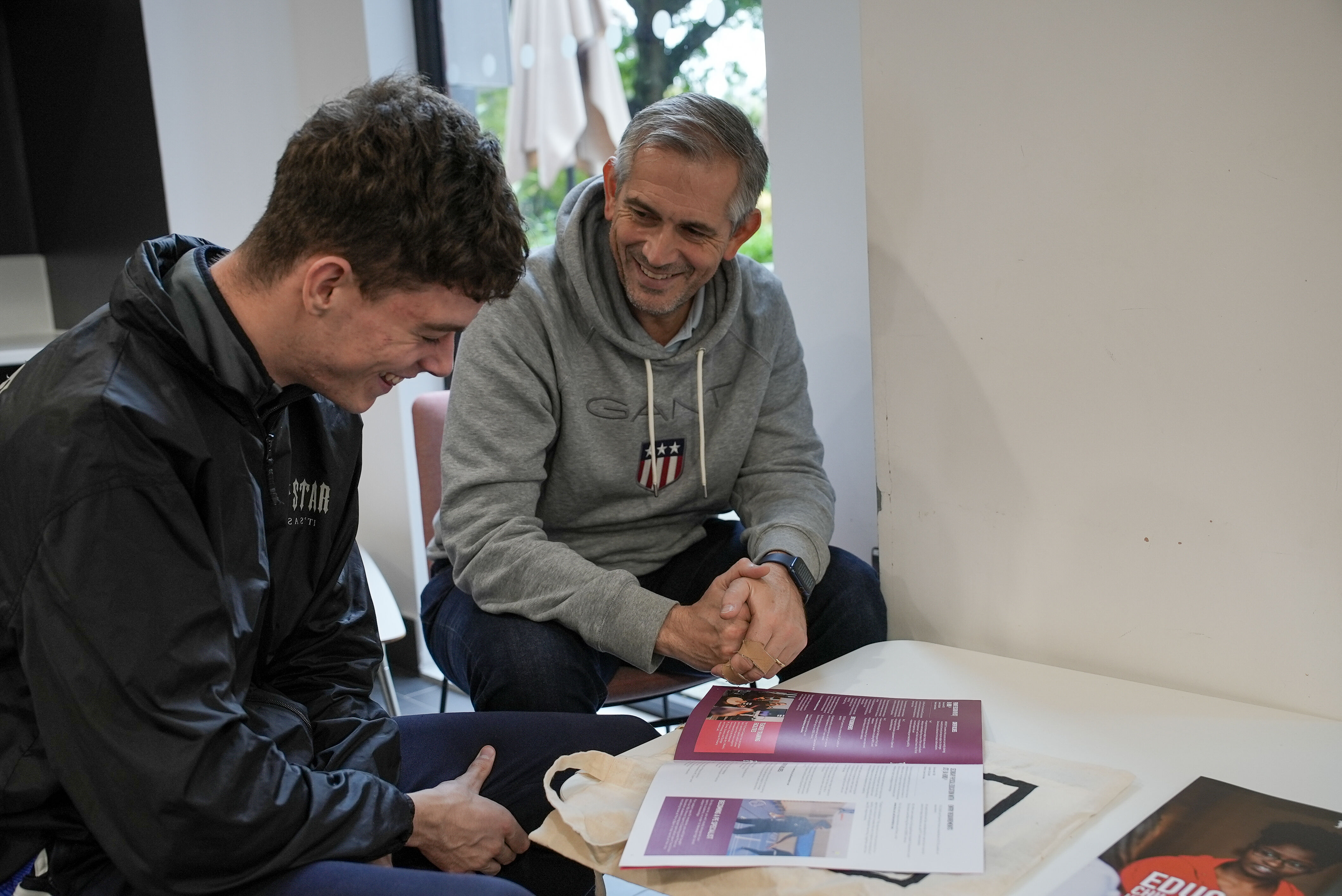
Advice

If your child is heading off to university, you might be concerned about the cost or worried that your child won’t be able to manage their money well. Either way, it’s important to have open conversations about finance. We’ve got some conversation starters and tips to get your child ready to handle their own finances.
Understanding budgeting and spending wisely
A big part of going to university is becoming more independent and budgeting is a big part of that. Make sure your child knows the cost of everyday things such as bills and shopping. Why not get them to do an affordable meal plan, go shopping and cook for the week? This is a great way to get them to see how much things cost and the importance of choosing affordable options.
Try to get them in the right mind frame before they head to university by thinking about what they do and don’t need to spend their money on.
Show your child the budgeting methods you find useful and use to keep your own spending in check. Whether that’s keeping a budgeting planner, online banking or allocating amounts to certain things.
Encouraging part-time work
Part-time work is a great way for your child to earn some extra cash, become more independent and add new skills to their CV. Universities have flexible student roles that allow students to pick up work when they have more free time and decline work if they have deadlines coming up. At university, we understand that you child's degree comes first, so university-based roles usually have a limit of how many hours they can work per week.
Also, you could encourage your child to find a job during the summer before they head to university. This could give them the extra bit of cash they need for socials, furnishing their student accommodation or buying some new kit for their course. Plus, it will give them new skills that they can use at university.
Explaining student bank accounts and overdrafts
Your child might have heard the word overdraft and think it’s something to be avoided at all costs, however, student overdrafts are a little different. If your child opens a student bank account, they will have access to a 0% overdraft.
Most overdrafts nowadays include hefty interest rates, so having access to a student overdraft with a 0% interest rate means that a student has the flexibility to go over their balance without being charged. Usually, student accounts automatically turn into graduate accounts when the course ends, and can continue the 0% overdraft for a further few years.
It’s important to tell your child to remember what their overdraft limit is when they open their student bank account, as they will be charged if they go over that limit.
Some student bank accounts also come with a free 16-25 Railcard, which can create huge savings on transport whilst at university. We’d recommend comparing student bank accounts on websites such as Money Saving Expert to find out the best deals before applying.
Discussing how you can help
Research commissioned by Unite Students found that 32% of students feel uncomfortable asking a parent or guardian for money when in financial difficulty, and 29% hide debt from family and friends. It may be useful to have a conversation about how you can support your child if they are in financial difficulty before they start university. Being able to have open conversations at this stage means that your child will be more likely to let you know if they are struggling, before getting into debt. If you do decide you are able to help your child and give them some extra cash, discuss how much this would be and the type of things you expect it to be spent on.
If you’re not able to top up their student loan, sit with your child to work out how they can earn some extra money at university. You might want to help them out with their CV or cover letter or even do some mock interviews to help them prepare for the application process.
Letting them know you’re there
If your child does have money struggles at university, the most important thing is for them to know that you’re there to support them in any way you can. Encouraging them to come to you in their time of need will stop them hiding their money troubles. In a survey of 16-24 year olds, 68% said they feel anxious about finances at university and 97% of students said it was affecting their wellbeing (Student Beans, 2022). This makes it even more important to have supportive conversations about money, in order to build resilience and create positive mental health at university.
